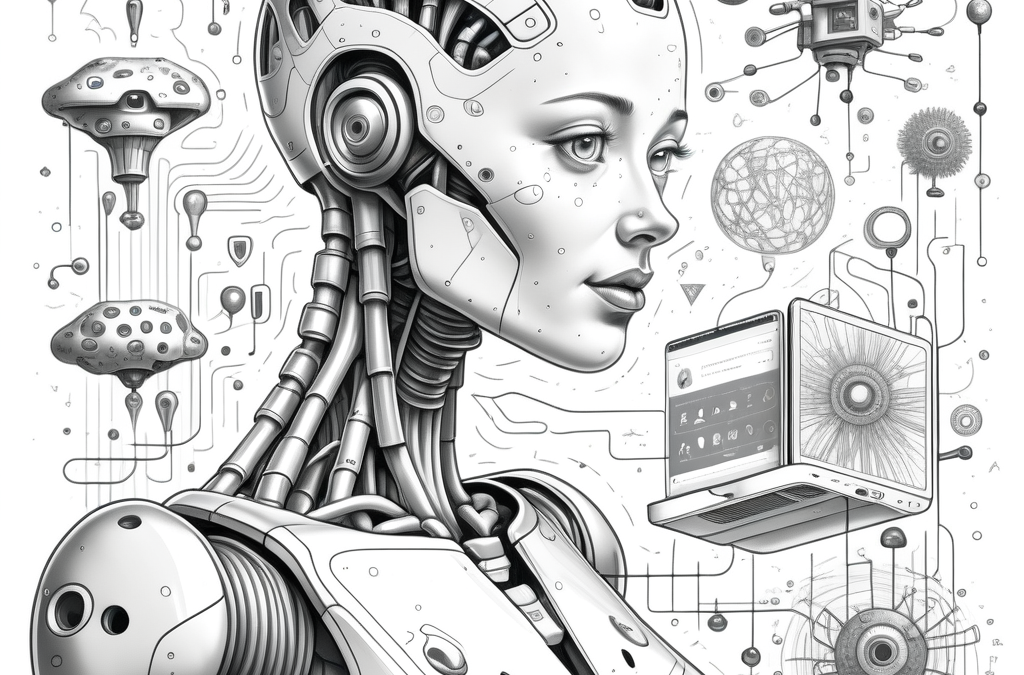Artificial Intelligence (AI) is a revolutionary technology that enables machines to think, learn, and make decisions much like humans. It isn’t just a concept from science fiction; it’s an integral part of our everyday lives, influencing everything from smart home devices to advanced healthcare solutions. Understanding AI is essential for young tech enthusiasts. This knowledge will not only empower you to navigate the future job market but also inspire you to be a part of the innovations that AI will bring.
What Is AI? A Beginner’s Guide to Artificial Intelligence
At its core, AI refers to the simulation of human intelligence processes by machines, particularly computer systems. These processes include:
- Learning: Acquiring information and rules for using it.
- Reasoning: Using the rules to reach approximate or definite conclusions.
- Self-correction: Improving performance over time.
AI functions through complex systems that utilize algorithms and massive datasets, allowing machines to perform tasks that typically require human intelligence.
The Foundations of AI: Algorithms, Data, and Learning
AI operates on a foundation of algorithms, which can be thought of as recipes guiding machines to achieve specific outcomes. Here’s how it breaks down:
- Machine Learning: This key component enables computers to learn from data without explicit programming. Through machine learning, systems can:
- Analyze large datasets to detect patterns.
- Predict future outcomes based on historical data.
- Neural Networks: Mimicking the human brain, these networks consist of layers of interconnected nodes (like neurons) that process information. This structure allows machines to tackle complex tasks such as:
- Image recognition.
- Natural language processing (NLP).
Decoding AI: Key Concepts Every Young Tech Enthusiast Should Know
Understanding AI involves grasping several essential concepts:
- Supervised Learning: This is where AI learns from labeled data, similar to having a teacher. The AI receives input-output pairs, helping it understand how to make predictions.
- Unsupervised Learning: In this approach, the AI explores data without pre-existing labels, discovering patterns and insights independently.
- Natural Language Processing (NLP): This technology allows machines to understand and interact in human language. Virtual assistants like Siri and Alexa utilize NLP to interpret our requests and provide appropriate responses.
- Computer Vision: This area enables machines to process visual information. For example:
- Self-driving cars use computer vision to recognize road signs and detect pedestrians.
AI in Action: Real-World Applications Shaping Our World
AI is not just a theoretical concept; it has practical applications all around us:
- Smart Assistants: Siri, Alexa, and Google Assistant help with daily tasks by understanding and responding to our commands. They learn from our usage over time to provide personalized assistance.
- Entertainment: Streaming services like Netflix use AI algorithms to suggest shows and movies based on your viewing habits, enhancing your entertainment experience.
- Healthcare: AI systems can analyze patient data to assist doctors in diagnosing illnesses and recommending personalized treatment plans, leading to better care and outcomes.
- Transportation: Self-driving cars rely on AI to navigate and make real-time decisions, promising safer and more efficient travel.
The Tech Revolution: How AI Is Changing Our Lives and Jobs
AI is reshaping the technology landscape by automating routine tasks, which allows human workers to focus on more creative and strategic initiatives. Here’s what this means:
- Job Transformation: While some traditional jobs may evolve or disappear, new opportunities are emerging in areas like:
- AI development.
- Data analysis.
- Technology management.
- Big Data and Analytics: AI excels in analyzing vast amounts of data quickly, identifying trends that inform decision-making in various sectors such as marketing and finance.
Get Started with AI: Resources and Projects for Young Innovators
For young learners eager to explore AI, numerous resources are available:
- Online Courses: Websites like Code.org and Khan Academy offer beginner-friendly courses on coding and AI concepts.
- Hands-On Projects: Consider creating your own chatbot or experimenting with simple AI-powered games that introduce programming and machine learning.
- Community Engagement: Join online forums and communities to collaborate with other young tech enthusiasts on projects and share ideas.
The Responsibility of AI: Ethics and Future Challenges
With the power of AI comes great responsibility. As technology evolves, ethical considerations become increasingly important, including:
- Data Privacy: Understanding how data is collected and used.
- Algorithmic Bias: Recognizing and mitigating biases that can affect AI decision-making.
Discussing these topics prepares young innovators to ensure that AI develops in ways that benefit society while addressing potential challenges.
Embracing the AI Revolution
AI is not just an exciting field; it’s a gateway to countless opportunities for young innovators. The more you learn about AI, the better equipped you will be to contribute to its evolution and apply it to real-world problems. Stay curious, explore new learning resources, and dive into AI projects. The future is bright, and with your innovative spirit, you could lead the next major advancement in technology!


